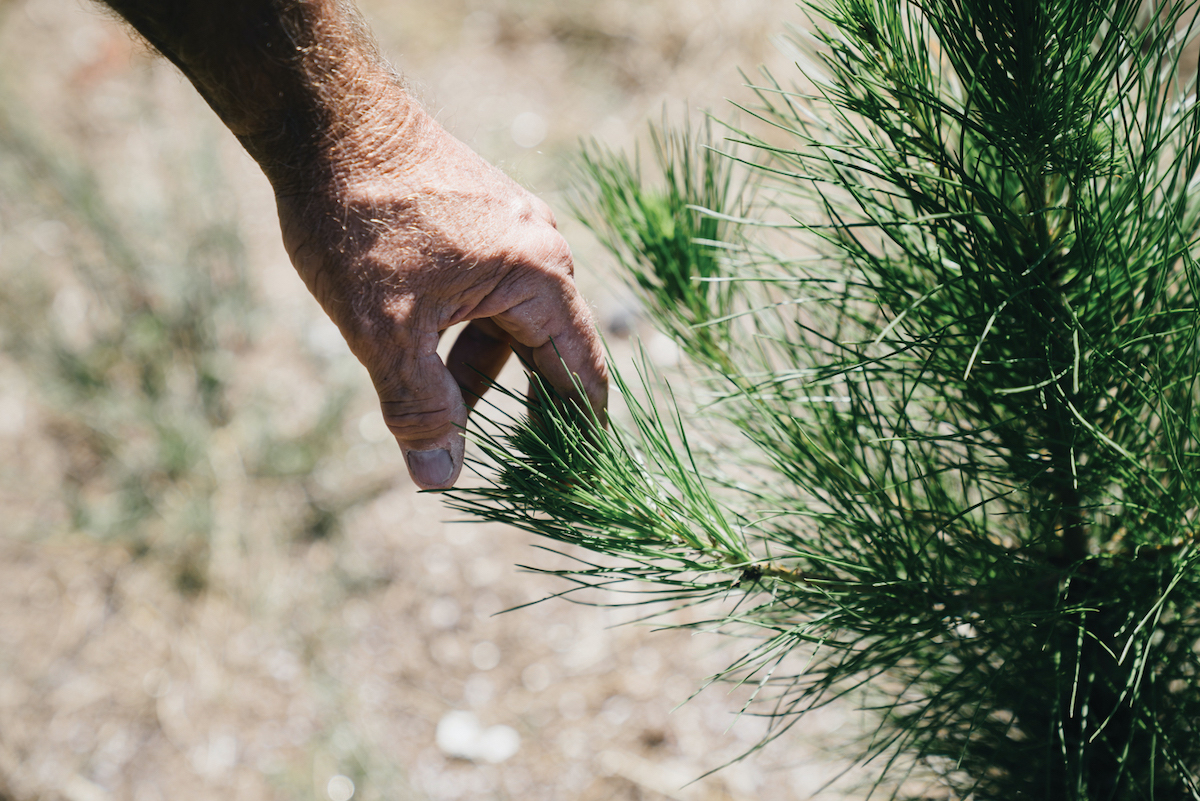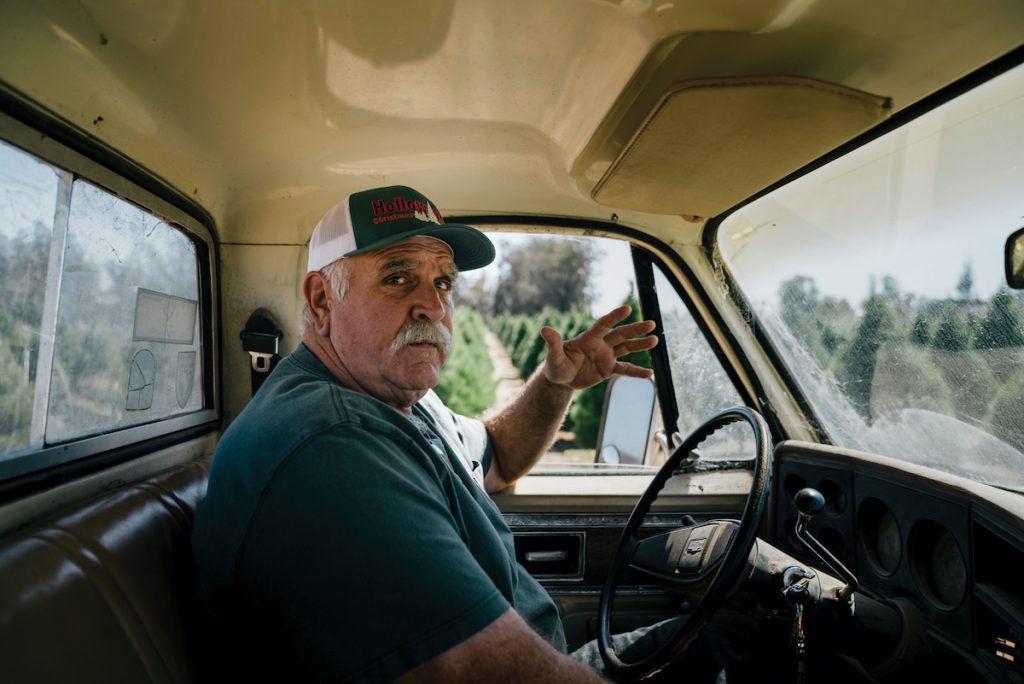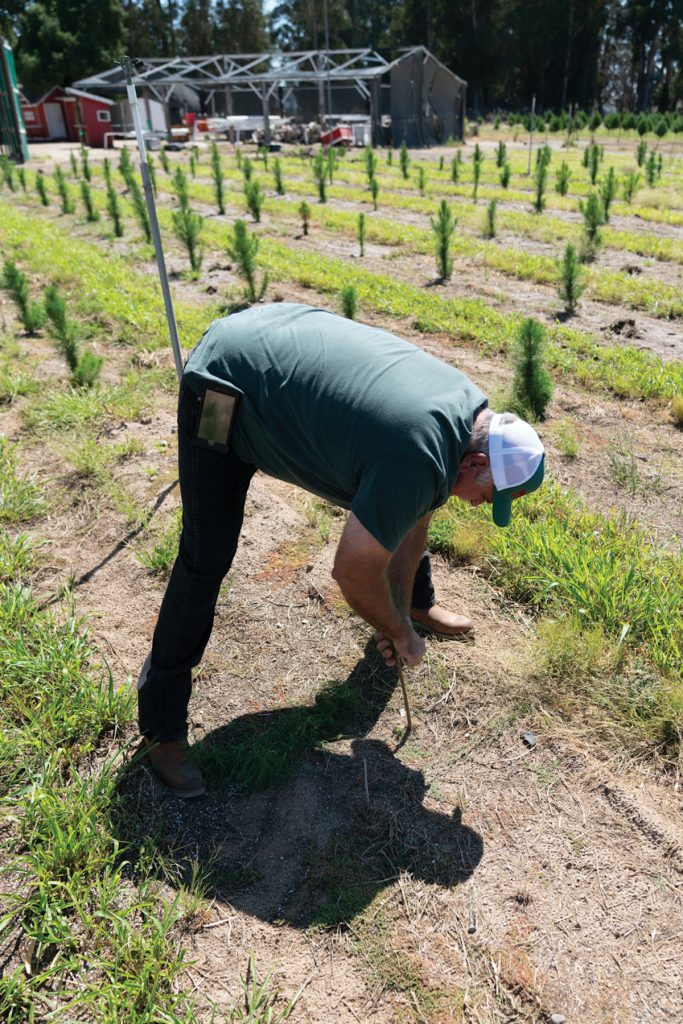
Celebrate A Homegrown Holiday
No one knows the journey from seed to brilliantly decorated tree better than Carl and Debbie Holloway of Holloway’s Christmas Trees in Nipomo, one of the largest choose and cut tree farms in the State of California. The farm, which has been in the Holloway family for three generations, is one of a handful of u-cut farms keeping the tradition alive for communities along the West Coast.

hen Carl’s father, Delmar Holloway, started selling Christmas trees in 1962, the simplicity of the era rang through. For $16.10 you could purchase your tree with a stand, and the Holloways sold out of everything they grew for the season. With two signs directing people to the farm and through word of mouth from Mr. Holloway being the local high school football coach, the Holloways’ farm drew locals to pick out a tree, reconnect with neighbors and celebrate the season.
But today, the business is not as simple. Over the last decade the prominence of corporate retailers selling Christmas trees has hurt small growers, including the Holloways, pushing them to set higher prices and pull out all the stops just to stay afloat.
“There is no money in trees. Every year we usually make enough to break even and pay the bills,” says Carl. “There’s no retirement, no money going in the bank.”
These days, Holloway’s Christmas tree farm offers quad train rides, hot chocolate, a 40-foot swing, marshmallow roasting, a snow machine, a photo area, the list goes on. Families may choose and cut down their own Monterey pine or pick out a pre-cut fir tree. Last season, the Holloways sold over 5,000 premium Christmas trees in all, 1,800 of them during Thanksgiving weekend alone. It’s clear that a trip to Holloway’s includes more than selecting a tree; rather, it is the ultimate fun-filled, family holiday event.


This well-rounded focus keeps generations of families returning to the farm year after year, but these farms and family traditions are at risk of fading away. In addition to prices tripling over the last few years, the quality of available Christmas trees has plummeted. “There’s more that needs to change than just big companies controlling the market,” advises Carl. Growers who understand the proper techniques for planting and nurturing trees are not only essential to growing them safely and naturally, but are also invaluable for maintaining a healthy planet. With good farm practices, come thriving habitats for plants, wildlife and humans. In 1983, the Holloways began a seedling nursery of native Monterey pines, which makes up almost half of the trees they sell on the lot. From nursery to harvest, each tree is handled with quality care. The typical tree growth cycle is four years and Holloway’s sells trees in third- or fourth-year at the earliest. Trees in their fourth year can grow as tall as 10 to 12 feet. However, the other half of the trees the farm sells are pre-cut firs, which cannot grow on the Central Coast. Regardless, consumer demand for these fir trees persists, as they’re looked upon as the quintessential Christmas tree.

]“People in California want the perfect Christmas tree, but as natural as they can get it,” Carl says. But sometimes the “perfect” tree is not always the most sustainable option.
Corporate suppliers continue to meet this demand at lower prices, so Holloway’s has to purchase trees from Washington, Wisconsin and Oregon and have them transported to their farm during the sales season. For the business, this means putting in the extra labor and money to import the highly sought after firs, while finding ways to maintain the level of quality they’ve mastered with their homegrown Monterey pines. All trees coming off the truck are guaranteed to have been cut within five days and preserved on the Holloway’s farm via submersion in a lake shaded by oak trees. Holloway’s is meticulous and dedicated to maintaining the quality of these trees, but at the end of the day it’s still a costly and environmentally impactful process.
As consumers, we have the power to choose the ways we support our local communities and ecosystems. Among many factors, today the greenest Christmas tree is one that is locally bought and recycled. So if you’re heading out to pick up a tree this season, here’s a golden rule to follow: purchase a real tree from a local farm offering some varieties that are native to your region, then make a stop to recycle or compost your tree when you’re done with it. Holloway’s does not offer roadside pickup, but will compost your tree for you as long as you drop it off.
During the holiday season, it’s easy to get caught up in convenience, but it’s often worth the extra effort if it means prosperity for both your neighbors and the environment. “Whatever your beliefs are, this is a beautiful time of year and a time to celebrate the concept of something a little bigger than ourselves,” reflects Carl.

